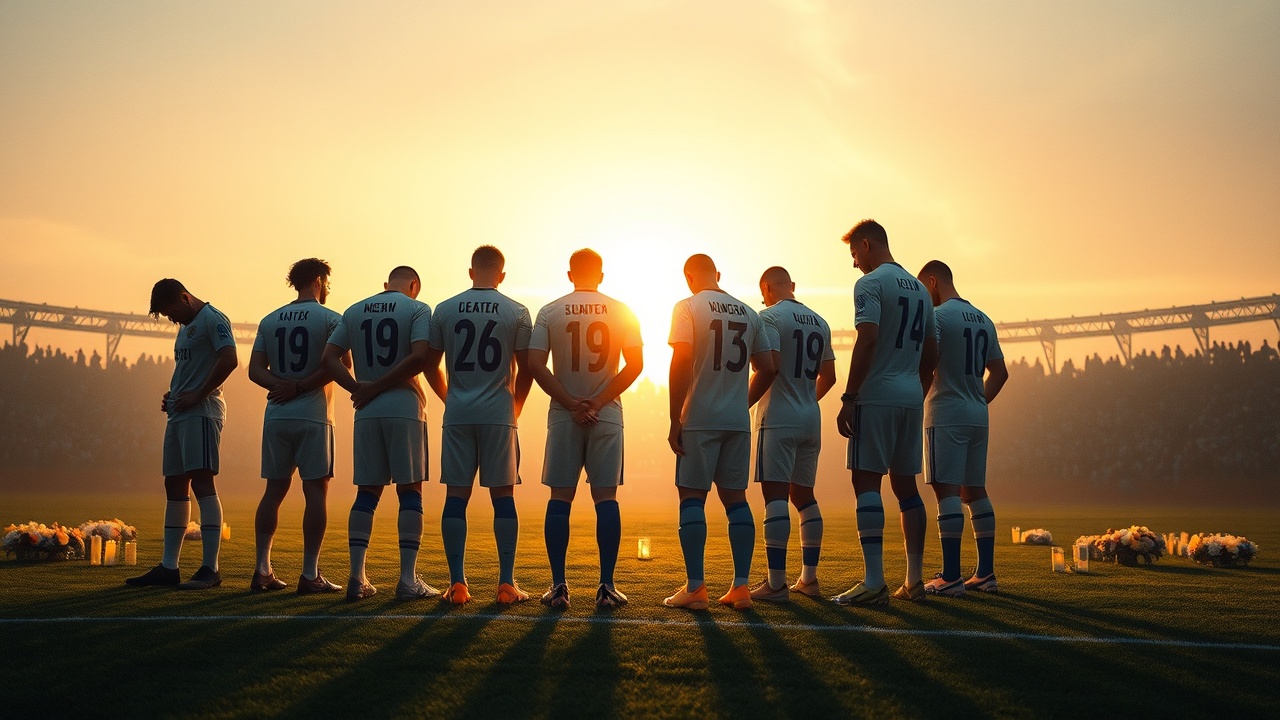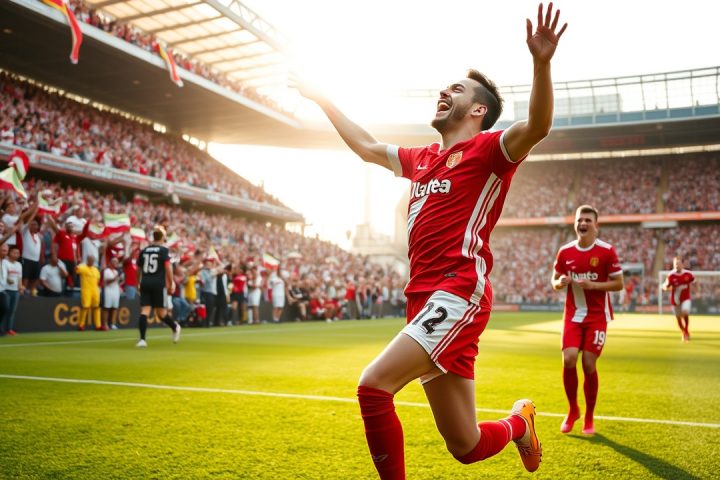The Impact of Loss in Football
In the world of football, the death of a player casts a long and painful shadow, marking a traumatic experience not only for teammates but for the entire club community. The poignant recollections of such events are often tied together with themes of grief and the emotional strain of coping with loss in a close-knit environment where players are like family.
The Tragic Story of David Longhurst
The story of David Longhurst, a promising forward for York City who tragically passed away suddenly on the pitch in 1990, serves as a resonant example of this. Longhurst, who had quickly become a beloved player after joining York City from Peterborough in March of that year, collapsed during a match against Lincoln City on September 8. Fans were filled with confusion and shock as medical teams worked frantically, but their efforts fell short; Longhurst suffered a cardiac arrest, brought on by an undiscovered heart condition, becoming the first player to die on an English football pitch in over 60 years. At just 25, his life was cut tragically short, and the echoes of that event resonate 34 years later with those who knew him, like his friend Andy McMillan, who still remembers the eerie silence that followed the chaos of the game’s end.
Managing Grief in the Football Community
As time has passed, the football community has seen a few similar tragedies, creating a complicated conversation about how teams manage after losing one of their own. The death of Liverpool’s Diogo Jota, for example, highlighted the rarity of such events involving fit, well-supported young athletes, typically celebrated in their prime. Jim Martin, a chaplain for the clubs, often assists teams in navigating their grief in the aftermath of loss, highlighting the need for support and communication among players who are usually expected to grieve privately.
Mark McGhee, manager of Motherwell, faced a grave challenge when Phil O’Donnell collapsed during a game in December 2007 and tragically passed away. McGhee, unsure of how to proceed, called a meeting with players and staff the following day, enlisting the help of the club chaplain to support a team struck by despair. Motherwell postponed upcoming matches as the emotional toll, particularly felt by O’Donnell’s relatives and teammates, warranted a period of grieving.
Guilt and Tribute
The experience of sorrow can lead teammates to internalize their feelings of guilt and helplessness, believing they should not engage in the joys of the game. McGhee highlighted this overwhelming sense of guilt, advising his players that playing the sport they loved was a tribute to those they lost and a way to honor their memory.
The Complexities of Loss
Clubs often find themselves in a unique situation upon the death of a player—balancing operational decisions with the emotional needs of their players. One clear takeaway is that there is no playbook for dealing with such loss; legal aspects around employment and contract termination can muddy the compassionate responses clubs wish to extend. Jamie Feldman, a legal expert, explains how employment law abruptly ends contracts upon death, often leaving clubs with difficult decisions about financial obligations that feel cold against the backdrop of human tragedy.
Sports executives often procure insurance to protect against loss, leading to discussions that can feel strictly financial. Yet many choose to remember and honor their deceased players through tributes, jersey retirements, or memorials, creating a lasting legacy. Grief takes different shapes in the sporting world, but the resulting pain often leads to profound bonds among teammates, as Andy McMillan’s reflections on Longhurst illustrate. He continues to hold communication with former teammates, cherishing memories and bonding over shared experiences.
Conclusion
When faced with loss, football clubs navigate a complex labyrinth of emotions that intertwine with sportsmanship, often leading to powerful, profound tributes that reflect the humanity behind the game. Understanding and supporting one another in these moments can transform pain into a shared legacy, ensuring that while players may depart, they will never be forgotten. Their influence lingers, shaping not just the teams they represented, but the lives they touched along the way.




